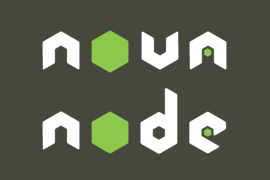Getting Started with Node.js in the Cloud
NovaNode had its first meetup event on March 20, 2012 at SpanishDict’s offices. I gave a talk titled “Getting Started with Node.js in the Cloud” covering Node.js application development and deployment to the cloud.
![Node.js cloud presentation][img_pres] [img_pres]: http://loose-bits.com/media/img/2012/03/24/nodejs-cloud.png
My talk goes through a first simple “hello world” application and builds up to a realtime chat application using Redis and websockets. We deploy the applications to Heroku and cover everything from logs and monitoring to add-on services and scaling. The talk concludes with an assessment and use cases for deploying on a Platform-as-a-Service provider like Heroku versus an Infrastructure-as-a-Service provider like Amazon Web Services.
The presentation is available live on GitHub, and uses the deck.js presentation framework. I have also posted the full demo source code to GitHub, including the chat server that we used during the meetup. Try it out!
